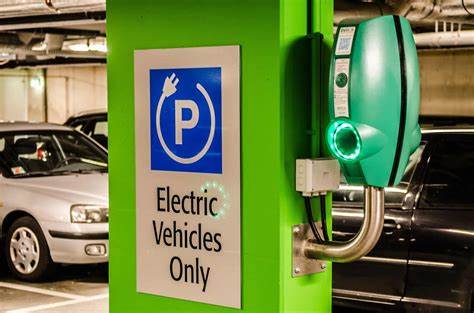In the global effort to mitigate climate change and foster sustainable development, the importance of transitioning to green mobility solutions, particularly electric vehicles (EVs), cannot be overstated. The need for cleaner mobility is clear, as highlighted in recent discourse surrounding Nigeria’s transition minerals and their role in renewable energy technologies.
Here’s why adopting electric vehicle for transport is a critical for a sustainable, carbon-free future:
Addressing the Climate Crisis:
Transportation currently accounts for a significant portion of global energy-related greenhouse gas emissions, contributing to air pollution and climate change. With projections indicating a substantial increase in carbon dioxide emissions by 2040, urgent action is needed to curb these emissions and limit the rise in global temperatures. Electric vehicles offer a promising solution because of its zero carbon emissions compared to internal combustion engine vehicles, thus playing a crucial role in mitigating the climate crisis.
Health and Environmental Benefits:
Beyond climate considerations, transitioning to electric vehicles also brings about substantial health and environmental benefits. Air pollution from traditional vehicles poses a severe risk to public health, leading to millions of premature deaths annually. By adopting electric vehicles, which produce zero tailpipe emissions, we can significantly improve air quality and reduce the prevalence of respiratory illnesses and other health conditions associated with vehicle emissions. Additionally, electric vehicles contribute to reducing noise pollution, further enhancing the quality of life in urban areas.
Alignment with Sustainable Development Goals:
The adoption of electric vehicles aligns closely with the United Nations’ Sustainable Development Goals (SDGs), particularly those related to climate action, health, and sustainable cities and communities. As outlined in the 2030 Agenda for Sustainable Development and the Paris Agreement on Climate Change, decarbonizing the transport sector is imperative for achieving global climate goals and promoting inclusive, sustainable development.
Electric vehicles offer a pathway towards achieving these objectives by providing clean, efficient transportation solutions that prioritize environmental sustainability and public health.
Challenges and Opportunities:
While electric vehicle adoption presents significant opportunities for addressing climate change and promoting sustainable development, it also comes with challenges that must be addressed. These include infrastructure limitations, such as the availability of charging stations, as well as affordability concerns and technological barriers. However, with concerted efforts from governments, businesses, and civil society, these challenges can be overcome, unlocking the full potential of electric vehicles to drive the transition towards a low-carbon future.
At Possible EVS, we recognize the critical role of electric vehicles in achieving our global climate change goals. By harnessing Nigeria’s abundant transition minerals and leveraging sustainable mobility solutions, we aim to accelerate the adoption of electric vehicles and contribute to a cleaner, greener future for all.
Through strategic partnerships, innovative policies, and community engagement, we are committed to driving the electric vehicle revolution and realizing our vision of sustainable mobility for generations to come.
Join us in embracing electric vehicle technology and leading the charge towards a more sustainable future.

